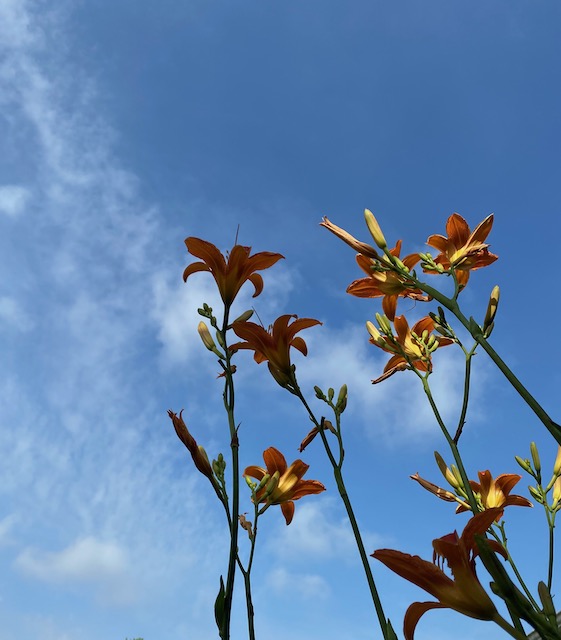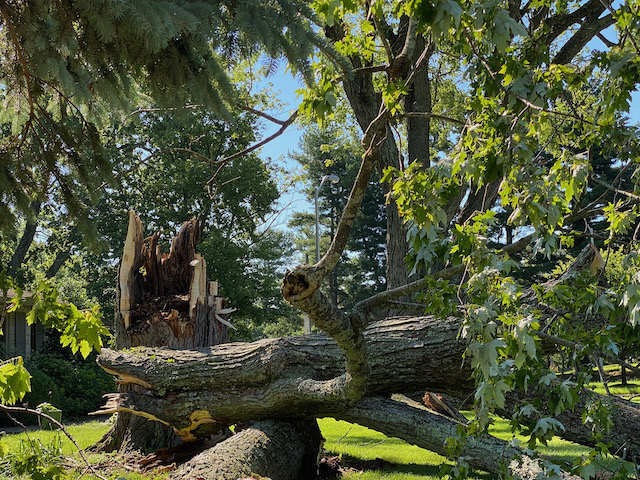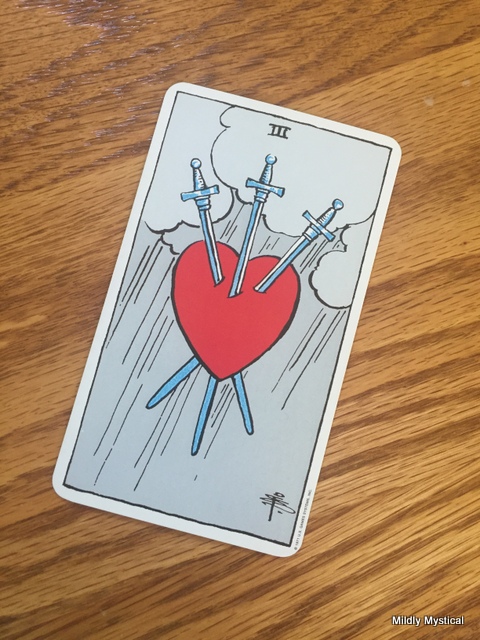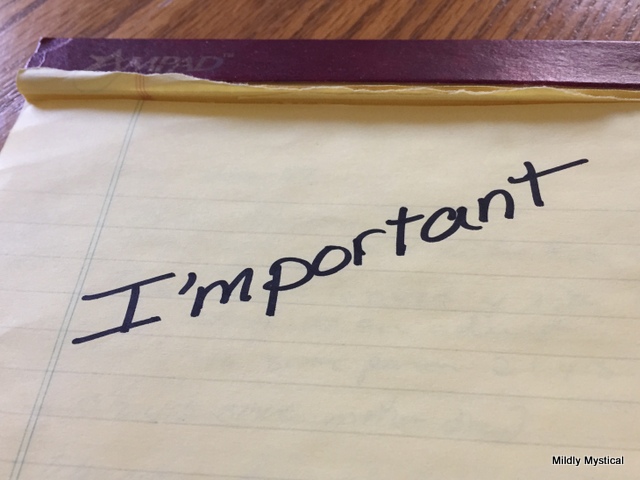In my mom’s new electronic photo frame, images from across the decades show up in delightfully unexpected order. Our family keeps it interesting by continually sending new pictures—some recent and some from the past. Yesterday the display showed a fabulous picture of my dad from the late 1950s. He was in his mid-twenties, leaning against his Chevy and looking like he was going to own the world. Then a recent picture of my thirty-six-year-old son came into view. Stretched out on the floor with his baby daughter, his face expressed a more mature kind of optimism. He showed the peace, strength, and love I knew from my father, years after that youthful snapshot.

Seeing the younger generation at a later stage of life suspended my usual sense of the passing of years. It bent time to see the grandson older than his grandpa. The daughter who would be me was not yet born; in that juxtaposition of photos my baby granddaughter was older than I was!
There’s a rare and treasured picture of four generations of mothers and daughters in our family taken when I was a baby. My mother is now about the age of the great-grandmother who seemed ancient when I was young. Somehow, I’m now in the role of grandmother. Decades after that picture was taken (and still many years ago) I took my place in a different photo of four generations, posing on the porch of the same house. I can still hear the ringing metallic creak of that screen door swinging open—a sound that announced love and welcome, remaining constant through all the changes from childhood into my years as a young mother. In this front porch snapshot my daughter was five or six, and my grandmother had become her great-grandmother. My mom in the photo is a little younger than I am now. How can this be? As with so many before me, I understand my elders better with each passing year.
My beloved grandparents passed on long ago. Recently I’ve lost my dad. A friend says one of the gifts of grief is the appreciation of what’s here, of our time with each other, and how much it matters. How brief it is. Another gift is the perspective on what has real weight and what doesn’t. It helps us see difficulties as the passing circumstances they are. It can remind us not to fritter away our energy and attention on things that don’t really matter.
Ironically, it takes a long time to understand how short life is. For much of my life the years seemed to extend far in front of me, and I took them for granted. But it’s not just the brevity of life that we’re slow to appreciate. There is also the mystery and gift at work through the living of our days. We have access to the Source of life, but it usually takes a long time to wake up to that reality.
Regardless of whether we’re awake to it, the Life Force moves and animates us in amazing ways. What unfolds is glorious. Looking back from a distance is like watching time-lapse photography of a flower bloom. In those earlier years I thought that living a life was my own doing. Now I know that my actions were more a matter of Life moving through me. Sometimes I was in the flow, sometimes I resisted it. On my best days, I showed up fully for what unfolded. I responded to the ways Spirit nudged me forward. Am I doing that now? I hope so.
One thing I know is that life is short, and I don’t want to miss out on it by not being present. As I experience time bending, connecting the generations, I see the fleeting beauty of the time that I have. I want to savor it, or at least show up fully for it. And I’ve learned that engaging in some kind of creative work helps.
Creating calls forth our best self. It asks only that we show up and engage. In making art, or taking it in, we engage with Presence. Art doesn’t provide us with answers; it doesn’t have to. Its job is to be present. It invites us to attend to what’s real, and to experience how reality shows up in the beauty that passes away. It helps us hold the questions, and to allow life, whatever it brings, to flow through us.
Like a Rothko painting, art can be a doorway into a temple. Engaging with art creates a still point in a turning world, the axis mundi that makes an opening for eternity.
Susan Christerson Brown



